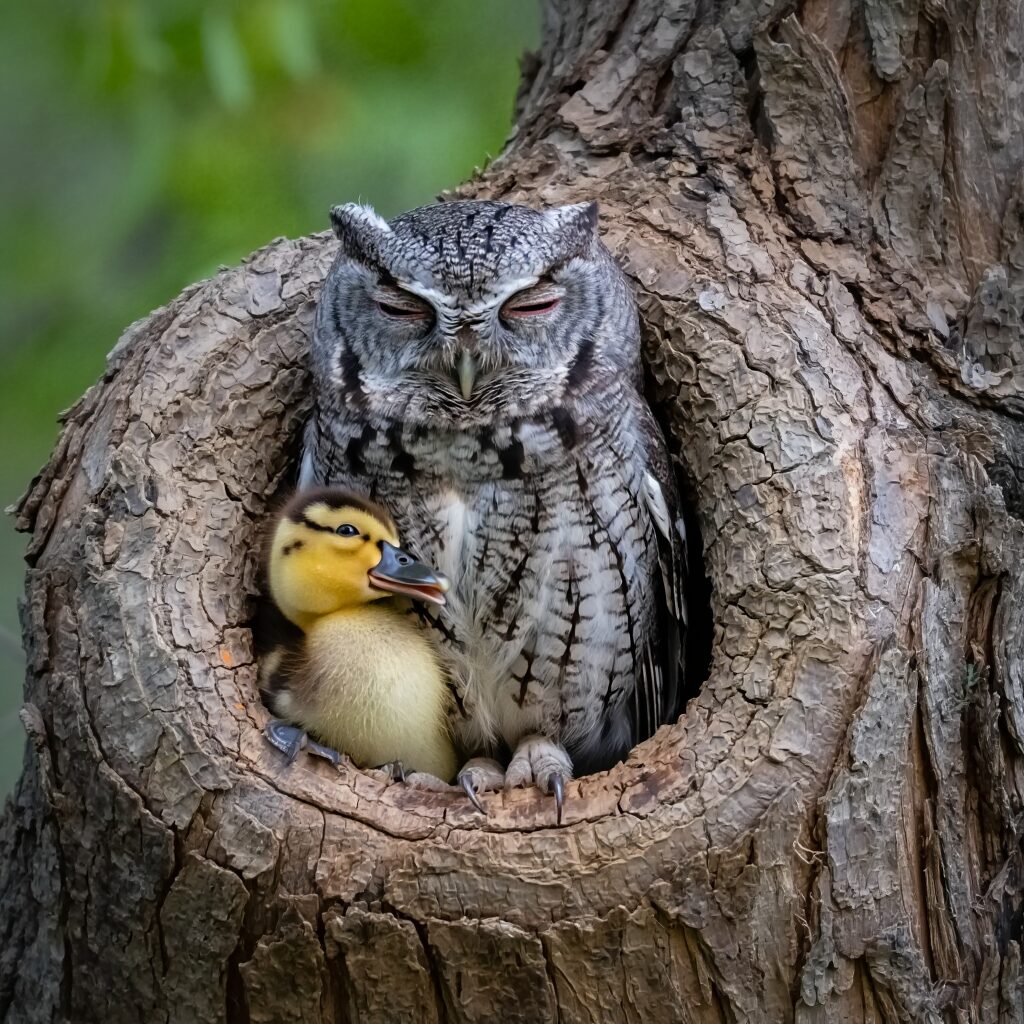Owls are night hunters, silent killers of the forest. Ducks are daytime swimmers, noisy and social. They don’t belong together—except in one extraordinary story.
In the woodlands of North America, a female Eastern Screech Owl was observed nesting in a tree cavity. But when naturalists peered inside, they didn’t just find fluffy owl chicks… they found a Wood Duck duckling nestled among them.
How did it happen?
Wood Ducks are cavity-nesters too. In spring, a female duck lays her eggs in tree holes, sometimes in the same ones used by owls. When the owl took over the nest, it likely left a single duck egg untouched. Against all odds, that egg hatched.
Instead of rejecting the intruder, the owl tolerated it—feeding the duckling as if it were one of her own. For days, the tiny bird sat side by side with the owlets, cared for by a predator that should have been its enemy.
But the story has an even stranger twist. Wood Duck ducklings, within a day or two of hatching, leap from their tree nests to join their mother near water. And one morning, the adopted duckling did exactly that—climbing to the lip of the nest box, hesitating for a moment, then plunging into the unknown. It survived, fluttering down to find its real kin by instinct alone.
Scientists call this an example of misimprinting—when parental instincts cross species boundaries. For us, it feels like a fleeting miracle: a predator nursing prey, life protecting life, before nature inevitably pulls them apart again.
In the end, the owl raised her owlets, and the duckling swam away to its own future. Two worlds touched, just long enough to remind us that even in the wild, survival sometimes wears the face of kindness.
